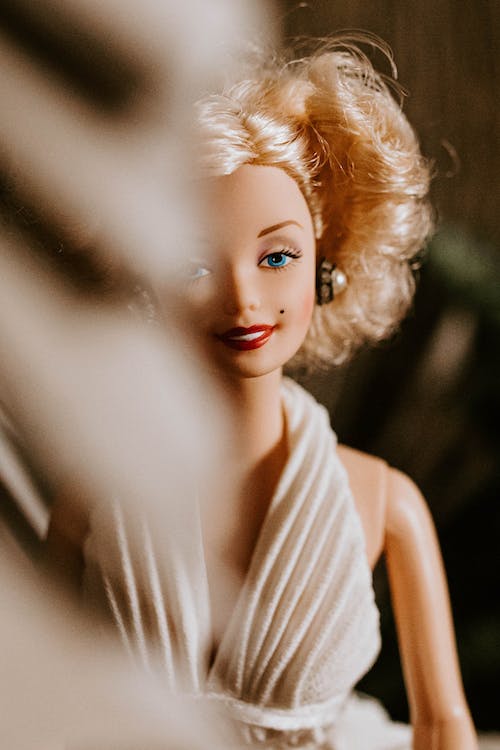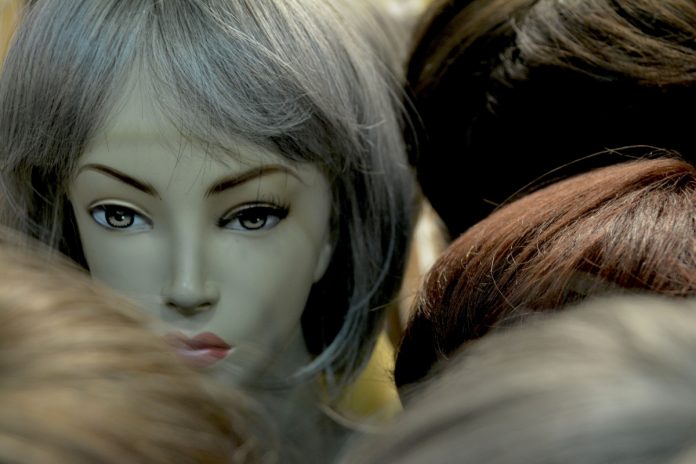What impact do relationships with inanimate objects, especially those modeled to look like animate humans, have on the beholders?
A new study, titled, “Exploring the Psychological Characteristics and Risk-related Cognitions of Individuals Who Own Sex Dolls,” which published in the Journal of Sex Research in February 2022, considers the psychology of people who frequently or exclusively enjoy the company of synthetic companions.
In the study, United Kingdom researchers at the Nottingham Trent University compared the psychological traits of men who own sex dolls with men who don’t, according to Giddy, an expert-reviewed discussion board and journal on sexual health.
“Some people argue that sex dolls are dangerous in the sense that people can do whatever they want to them, with the concern being that this will increase rates of in-person sexual aggression and violence,” says Justin Lehmiller, Ph.D., an Indiana-based research fellow at the Kinsey Institute.
According to Giddy, this new research from the Journal of Sex Research was used to determine the legitimacy of that belief, or, by contrast, if “owners of adult-like sex dolls comprise a diverse range of demographics and have various motives for seeking synthetic companionship.”
(Spoiler alert: The results seem to indicate that not all sex doll relationships are sexual, and many aren’t ill-willed!)
This writer recalls a story from a previous adult retail worker who asked not to be named.
STOREROTICA: Do you have any stories from your time in the stores?
ANONYMOUS: Plenty. I had a guy who used to buy my mannequins. He used to come in every couple of months and buy all the expensive dolls, starting with the $300 ones and moving up to the ones that cost twice that. He was an older man, and he would buy them with his social security checks. He came on his bicycle, so we would have to take them out of their boxes and put them in a trash bag, so he could carry the dolls on his bike down Park Road. About a year in, he graduated to the mannequin…
STOREROTICA: Did you normally sell the mannequins?
ANONYMOUS: Well, we didn’t initially, but technically, I was told everything in the store was for sale…
So, he asked me one day, “Can I buy the mannequin?”
And I was like, “For $500, yea.”
And he agreed to the outlandish price, because he wanted our mannequin. We replaced the mannequin, and, after that, the guy who bought it came in every six months or so to buy our latest mannequin. He would have to come in and have conversations with them because he had to make sure that they were a good fit for the mannequins he had accruing back at home.
Now, this story primarily concerns mannequins, not sex dolls, but it seems to indicate something that could be true for many who take on partnerships with anthropomorphic inanimates. Especially based on his having conversations with the dolls prior to his acquiring them, it seems that what this man was getting from his mannequins wasn’t even unlimited and silent sex, it was (and probably remains today) companionship.
The public acceptance of private sex doll ownership
Over the years since their invention, sex dolls have become not only anatomically correct, but increasingly lifelike.

“Some can even speak and move,” shares Giddy. “They’ve also become far more accessible and affordable.”
There is still a stigma surrounding doll ownership, but the market for this product is not entirely what it’s perceived as. While single men do make up the majority of buyers, more couples have been purchasing dolls since 2020, according to an August 2022 study by Bed Bible.
Giddy summarizes the “purchasing data from eight major retailers, three of the largest manufacturers, and a survey of 8,314 people,” to conclude “an average 33 percent year-over-year increase in sex doll sales since 2016 and about a 75 percent rise in 2020. And it wasn’t just men who purchased sex dolls. The study indicated that 9.7 percent of American adult men had bought a sex doll and 6.1 percent of American women had, too.”
“It’s now better understood that some people use them to explore fantasies in a safe and controlled environment,” states Lisa Lawless, Ph.D., a clinical psychotherapist, sexologist and CEO of Holistic Wisdom in Bend, Oregon.
The international survey of sex doll owners
In the international online survey of 158 men who owned adult-like sex dolls and 135 who didn’t, the majority of owners were from the U.S. (87) and the United Kingdom (33). Of the sex doll owners, 88 were single, 25 were married and 22 were in a relationship. Among the 88 single men, 32 were divorced.
The surveyors asked the owners to explain why they had the dolls.
Giddy reports that “All participants answered questions to assess their emotional health, attachment styles, fantasies about sexual coercion or sadism, disordered personality traits and proclivity toward sexual aggression.
“When comparing data from owners and non-owners, the researchers found no significant differences in most psychological traits. However, owners appeared less prone to sexual aggression and had lower levels of sexual self-esteem. They were more likely to see women as ‘unknowable’ and as sex objects and to express higher degrees of sexual entitlement. Owners were more likely to have obsessive personalities and view the world as ‘dangerous.'”
What might these findings mean?
Relationships with women
According to Martha Tara Lee, Ph.D., D.H.S., a relationship counselor and clinical sexologist with Eros Coaching in Singapore, a variety of factors could contribute to objectification and feelings of sexual entitlement, “including social isolation, unrealistic expectations about relationships and intimacy, misconceptions and stereotyping.”
“These can be fueled by a lack of personal relationships combined with media and other online influences perpetuating such thoughts and feelings,” Lawless says.
She explains that men with these beliefs may desire control over their sexual partner, and a sex doll may artificially create that experience, and adds that these findings are, of course, correlational and don’t imply causation.
“A question that this research cannot answer is what came first: The beliefs or the sex dolls,” Lehmiller said. “So for example, are men who see women as sex objects more likely to gravitate toward sex dolls in the first place, or does owning a sex doll increase sexual objectification? We need more data to be able to answer questions like this.”
Feelings of aggression
“Many have argued that sex doll use is likely to increase rates of sexual aggression,” Lehmiller says. “However, these data are inconsistent with that suggestion.”
This finding could indicate that less aggressive people are more inclined towards the inaminate partner; or it might mean that the use of sex dolls provides a controlled outlet for frustrated sexual desires, which could otherwise be directed at actual people.
Low self-esteem
“It’s possible that persons who have lower sexual self-esteem, to begin with, are more likely to be drawn to sex dolls because they offer some degree of psychological safety—dolls are not going to reject or criticize you,” Lehmiller says.
The reasons for low self-esteem are many, according to Lawless. It could stem from poor experiences or success in human relationships, as with the divorces study participants. Owners of sex dolls may also use their objects of love to cope with social problems, such as social anxiety and relationship trauma. The stigma associated with being a sex doll owner could be another contributing factor.
Can sex dolls replace human connection?
Experts believe that for some owners of sex dolls, isolation from positive human relationships could contribute to emotional difficulties and problems concerning beliefs about other people and themselves. But whether the company of a synthetic love doll benefits or detracts from the well-being of the owner and the people they encounter in life varies greatly from person to person.
“The limited data on sex doll ownership point to a range of experiences, as with everything else in life. Many doll owners report high satisfaction levels, and some feel an intimate connection to them,” Lehmiller says. “Some also forge a sense of identity and community online with other sex doll owners, which may serve as a buffer against loneliness and isolation.”
While an inanimate companion might meet some needs for some people, it could certainly crate further challenges for others, such as inhibiting real-life relationships, Lawless notes. Sharing intimacy solely with a synthetic partner might trouble communication skills, including a person’s ability to empathize with another human being.
“While sex dolls can provide physical satisfaction, they cannot replace the emotional connection and social interaction that many people seek in relationships,” Lee says.
The bottom line
The study provides a peek into the minds of some sex doll owners of various demographics and helps to challenge the stereotypes of sex doll owners. Experts warn against using the data they’ve compiled to substantiate any assumptions about all people with synthetic companions. Everyone’s sexual experience is distinct, including sex doll owners.
“It’s important to recognize that sex dolls can serve various purposes for different individuals. Some people may use sex dolls as a means of exploring their sexuality, fulfilling specific fantasies, or as a tool for sexual experimentation,” Lee says. “Others may find companionship and emotional connection with their dolls. It’s crucial to approach the topic without judgment and respect individuals’ choices as long as they are consensual and legal.”
Again, experts say that more research is needed to understand the complex psychologies of sex doll ownership. If you have questions concerning sex doll ownership, Lee recommends speaking with a therapist or sexologist who can provide informed support.
Resources:
Anonymous SE Interview, scrapped text
Giddy, “What Do Sex Dolls Say About Men?”
The Journal of Sex Research, “Exploring the Psychological Characteristics and Risk-related Cognitions of Individuals Who Own Sex Dolls”














You must be logged in to post a comment.